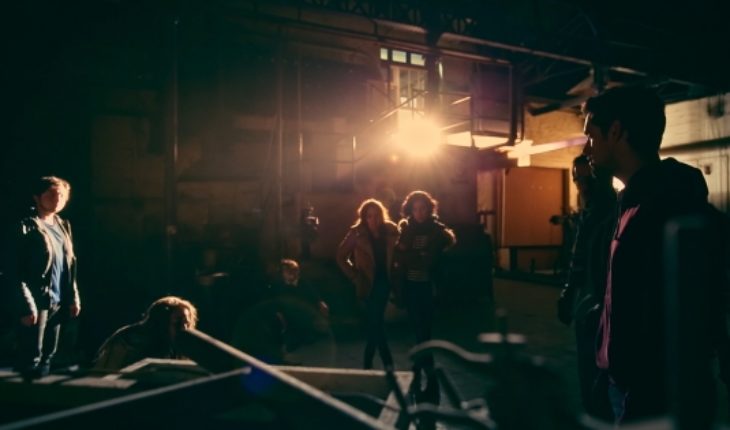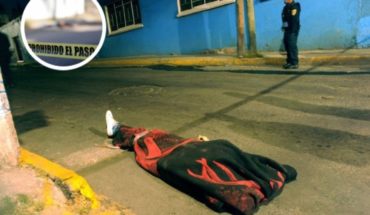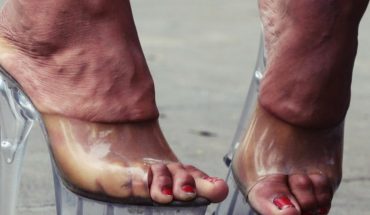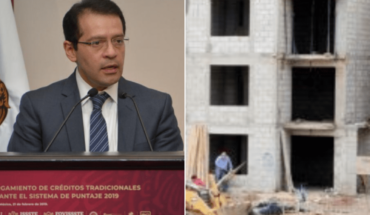if by 2015 the theatre company La situation recounted in singular mounting ” E AO occupation”, directed by Isabel Fonseca and Cecilia Chandía what happened the day of the military coup to the interior of the State Technical University (today Universidad de Santiago), filmmaker Peter McPhee (Santiago, 1987) portrayed on”If walls could speak”not only this unique experience, but also the “ghosts” that live until today in the University facilities where Gregorio Mimica student was murdered.
The tape, which includes the testimony of Osiel Nuñez, President of the September 11, 1973 FEUT, will be shown Monday at 17:00 in the Vice Presidency of Extension (VIME, Las Sophoras 175, Central Station), in a free function, after its recent release in the Santiago Festival Internacional de Cine (SANFIC).
What began as a simple registry then became a documentary “to realize the conceptual relationship between the historic and dramatic that represented theatrical installation, with rumors about alleged presence of spirits who penaban in the” University”, says McPhee.
“For some of the women’s toilet staff, these ‘presences’ manifested them daily correspond to those who have been killed in that place.” That premise became the starting point of the documentary story”, says the filmmaker about his seventh film, after”In a corner”(2008),”The last text”(2009),”18 pence”(2010),”Refuge of silence”(2011),”The wardrobe of the people”(2011) and”The end of the day”) 2015). “Ghosts” of the joint venture were several challenges faced by this film.
“In all documentary, a great challenge is to win the confidence of those who appear in front of camera,” says the director. “It is always necessary to get to a point where they forget you and your camera, so spontaneous situations and genuine reflections, emerge such gift giving the characters from one moment to another.”
However, the main challenge was in the narrative and aesthetic, “how record and show the work of the actors, because the film was not about the play”.
“I wanted it to use as a device, in the documentary work, for which gatillara other moments and feelings in the characters and the audience”, account. “It was easy work to nix the other, so that my effort was always not to lose the perspective that the important thing for me was to reflect on the sensory and emotional signs that leave certain historical facts, in this case ‘, ‘ghosts’, and whatever else they can represent conceptual and poetically “.
“I personally think that when there are traumatic events, these are printed both in people and in the spaces, and continue manifesting itself in different ways, stubbornly at the time. It is no coincidence that many of the women’s toilet of USACH staff affirm having seen ‘Shadows’ in some classrooms. It is no coincidence that for those people who lived through the hit at the University, faced again with that space is a trigger that appear other types of ghosts, such as traumatic memories”.
Osiel Núñez on the plate that resembles Gregorio Mimica, student killed inside the joint venture after the coup.
The testimony of the girls in the bathroom one of the things that catch the attention of this tape is just the appearance of many women of cleaning, usually absent in the filmography. Why did he include them?
“Because in the same way that studying history must go beyond the revision of official sources, producing the documentary looked some Holdings Limited, secondary, but no less profound”, responds.
In addition to the testimony of Núñez-“who was very generous to share their expertise, their experience with the play and the documentary” – for the Director, it was important to “inquire into the experiences of the women in the staff toilet, because they are those who circulate all “the days and hours at the University”.
“Their personal experiences were as important as the Osiel. In fact, he told me that he did not know the perspective of them around the theme. A documentary narrative much enriched the conjugation of the big and small stories. Many of these women did not live on September 11 in the University, but, according to themselves, yes live daily the consequences of what they meant.”
Talk about the 73 Although McPhee does not belong to the generation that lived through the hit, believes that reviewing the history of the dictatorship “is as important as it should be with many other historical periods of our country”.
“It is perhaps the most painful event in our recent history, and as such, it should be explored in different media and addressing it with many points of view”, says. “I can understand – but do not understand – that there are people who get tired of the subject and that critique to the national cinema to bring it to the screen, precisely because I think that while more perspectives exist and are presented, richer is the discussion and possible study”.
“Cinema is a moment of encounter, of reflection; an excellent way to delve into issues like this. Today the discussion occurs mainly in this illusion of participatory democracy that are social networks, which do not encourage reflection on anything and allow fights mostly”, points out.
“There will be some who will criticize as this makes reference to hit ‘back’ – in quotes because this film is not about the coup, comes in this – but personally, I think unintelligent which have sectors seeking to ignore the history of our country,” because without the memory and pain there is no healing possible. Expose a topic is perhaps the best way to overcome an issue. Perhaps if we were not pulling the garbage under the carpet all the time, it would be less contentious to make reference to a subject such as this.”
“Yes I think that we must find new ways and approaches to this issue in particular, find nuances, proof and new perspectives, how several colleagues are filmmakers, in different means of expression”, he concludes.
If the walls could speak sheet: direction, production, script: Peter McPhee Producción Executive: Isabel Fonseca Alomar with the participation of the cast of the play EAO: occupation (2015) direction of photography and camera: Peter McPhee Montaje: Peter McPhee
Music: Jorge Puig-sound design: RANG Post image: Moris Muñoz S.
translated from Spanish: The documentary and the play that tells what happened in the UTE the day of the coup
September 8, 2018 |





